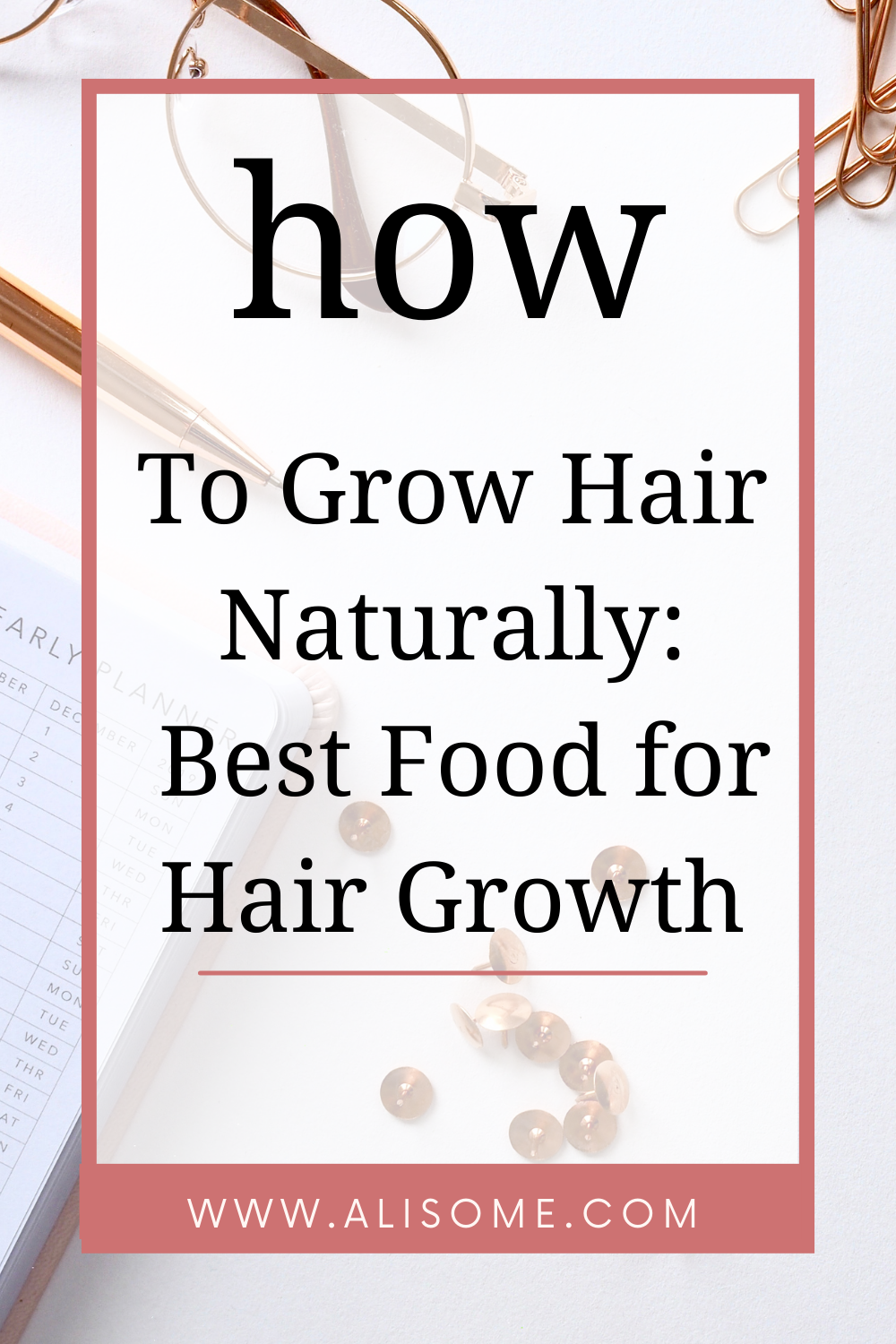While there isn't one miraculous "superfood" that guarantees hair growth, incorporating certain nutrients into your diet can contribute to healthy hair and potentially aid in growth. Here are some of the best foods for hair growth:
Protein: Hair is primarily made of protein, so ensuring you get enough is crucial. Aim for 0.8 grams of protein per kilogram of body weight daily. Excellent protein sources include:
Eggs: Rich in protein and biotin, which promotes hair growth.
Fatty fish: Packed with protein and omega-3 fatty acids, which nourish hair follicles and improve scalp health. Salmon, tuna, and mackerel are great choices.
Chicken and lean meats: Provide protein and iron, another essential mineral for hair growth.
Iron: This mineral helps red blood cells carry oxygen to your scalp, promoting hair growth. Include good iron sources like:
Leafy green vegetables: Spinach, kale, and collard greens are loaded with iron and other hair-healthy nutrients.
Red meat: A good source of iron, but consume it in moderation.
Legumes: Beans, lentils, and chickpeas are plant-based iron sources.
Omega-3 fatty acids: These fats reduce inflammation and promote hair growth. Find them in:
Fatty fish: As mentioned above, fatty fish like salmon are excellent sources.
Chia seeds and flaxseeds: Rich in omega-3s and also provide fiber and antioxidants.
Walnuts: Contain omega-3s, biotin, and vitamin E, all beneficial for hair.
Other beneficial nutrients:
Vitamin A: Sweet potatoes, carrots, and spinach are rich in vitamin A, which supports healthy sebum production for scalp lubrication.
Vitamin C: Important for collagen production, which strengthens hair follicles. Citrus fruits, bell peppers, and broccoli are good sources.
Vitamin D: May help regulate hair growth cycles. Fatty fish, mushrooms, and fortified milk are good sources.
Biotin: Plays a role in hair growth and can be found in eggs, avocado, and nuts.
Remember, a balanced diet is key to overall health, including hair health. While these foods can contribute to healthy hair growth, they are not a magic bullet. If you're concerned about hair loss, talk to your doctor to rule out any underlying medical conditions.
Other beneficial foods:
Sweet potatoes: Rich in beta-carotene, which your body converts to vitamin A, important for scalp health and sebum production.
Oysters: Excellent source of zinc, which helps regulate hair growth cycles and can prevent hair loss.
Greek yogurt: Provides protein, vitamin B12, and calcium, all beneficial for hair health.
Seeds: Pumpkin, sunflower, and sesame seeds are good sources of vitamin E, zinc, and other hair-nourishing nutrients.
Dark, leafy greens: Spinach, kale, and collard greens are packed with nutrients like iron, vitamin C, and folate, all of which are important for hair health.
Berries: Packed with antioxidants that protect hair follicles from damage. Blueberries, strawberries, and raspberries are all great choices.
Guava: This tropical fruit is a powerhouse of vitamin C, essential for collagen production, which strengthens hair follicles.
Brazil nuts: These nuts are the richest dietary source of selenium, a mineral that helps protect hair follicles from damage. However, be mindful of portion sizes as they are high in calories.
Sweet peppers: Packed with vitamin C and antioxidants, sweet peppers help keep hair strong and healthy. Bell peppers, especially red and yellow ones, are particularly rich in these nutrients.
Eggs: An excellent source of protein and biotin, both of which are crucial for hair growth.
Fatty fish: Rich in omega-3 fatty acids, which nourish hair follicles and improve scalp health. Salmon, tuna, and mackerel are great choices.
Additional tips for healthy hair growth:
Stay hydrated: Drinking plenty of water helps keep your scalp and hair hydrated, which is important for growth.
Manage stress: Chronic stress can contribute to hair loss. Practice relaxation techniques like yoga or meditation.
Limit heat styling: Excessive heat styling can damage hair. Use a heat protectant spray and air-dry your hair whenever possible.
Deep condition regularly: Deep conditioning helps to replenish moisture and prevent hair from becoming dry and brittle. Look for conditioners that contain ingredients like shea butter, coconut oil, or argan oil.
Trim your hair regularly: Split ends can travel up the hair shaft and cause breakage. Trimming your hair every 6-8 weeks can help prevent this.
Protect your hair from the sun: Sun exposure can damage hair, so be sure to wear a hat or use a hair product with UV protection when spending time outdoors.
Scalp massage: Massaging your scalp with oil or your fingertips can improve blood circulation and promote hair growth. You can use carrier oils like jojoba oil, coconut oil, or almond oil.
Deep condition regularly: Deep conditioning helps to replenish moisture and prevent hair from becoming dry and brittle. Look for conditioners that contain ingredients like shea butter, coconut oil, or argan oil. Apply the conditioner to damp hair, focusing on the ends, and leave it on for 20-30 minutes before rinsing out.
Trim your hair regularly: Split ends can travel up the hair shaft and cause breakage. Trimming your hair every 6-8 weeks can help prevent this.
Protect your hair from the sun: Sun exposure can damage hair, so be sure to wear a hat or use a hair product with UV protection when spending time outdoors.
Avoid tight hairstyles: Tight hairstyles can pull on the hair and lead to breakage. Opt for looser styles whenever possible, such as braids or loose buns.
Reduce stress: Chronic stress can contribute to hair loss. Practice relaxation techniques like yoga, meditation, or deep breathing to manage stress levels.
Get enough sleep: Aim for 7-8 hours of sleep per night. Sleep deprivation can disrupt hair growth cycles.
Consider supplements: Talk to your doctor about whether hair-specific supplements like biotin or iron might be beneficial for you. However, keep in mind that supplements are not a magic bullet and should not be used as a substitute for a healthy diet.
Remember, everyone's hair is different, and what works for one person may not work for another. If you're concerned about hair loss, it's always best to consult with a doctor or dermatologist to rule out any underlying medical conditions.

